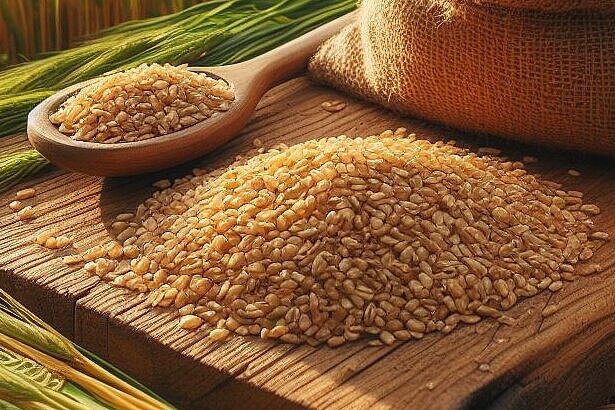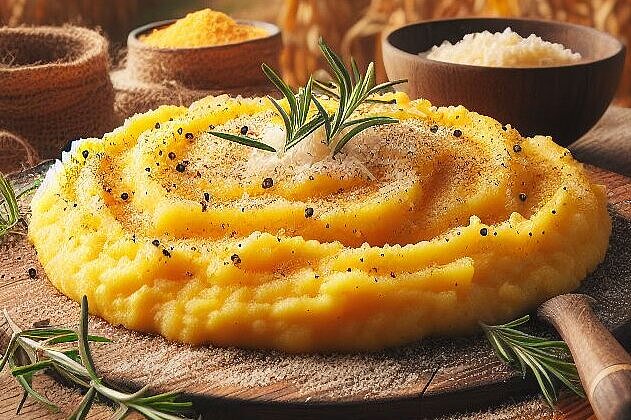Couscous

Couscous is a popular dish from North Africa and the Middle East that consists of small balls of durum wheat semolina. It is a good source of carbohydrates, protein, fiber and some vitamins and minerals. But what about your dog? Can he also eat couscous? In this article, you'll find out everything you need to know about couscous for dogs.
What is couscous?
Couscous is a cereal product made from durum wheat semolina. The semolina is mixed with water and salt and formed into small balls, which are then dried. To prepare couscous, simply soak it in boiling water or stock until it is soft and fluffy. Couscous can be eaten as a side dish with meat, vegetables or salad or as a main course with various spices and ingredients.
Can dogs eat couscous?
The short answer is yes, dogs can eat couscous, but only in moderation and if they do not have a gluten intolerance or allergy. Because couscous is made from wheat, it contains gluten, a protein that can cause digestive problems or allergic reactions in some dogs. If your dog has no problems with gluten, you can give him some couscous from time to time as a treat or supplement to his food. However, make sure that you prepare the couscous correctly and do not add any harmful ingredients.
Benefits of couscous for dogs
Couscous has several health benefits for dogs when fed in moderation. It is a good source of:
- Carbohydrates: they provide energy for your dog and support their muscle function.
- Protein: This is important for building and maintaining muscles, skin, hair and nails.
- Fiber: It aids digestion and helps regulate blood sugar levels.
- Vitamins: Couscous contains mainly vitamin B1 (thiamine), vitamin B3 (niacin) and folic acid, all of which are important for metabolism and nerve function.
- Minerals: Couscous contains iron, magnesium, phosphorus, potassium and zinc, among others, all of which are important for various bodily functions.
Disadvantages of couscous for dogs
Couscous also has some disadvantages for dogs if it is fed too often or in too large quantities. It can:
- Contain gluten: Gluten can cause digestive problems such as diarrhea or bloating in some dogs, or trigger allergic reactions such as itching or skin rashes. If your dog is sensitive or allergic to gluten, you should not give him couscous.
- Providing too many calories: Couscous is a carbohydrate-rich food that contains a lot of calories. If your dog eats too much couscous, he may gain weight or become overweight. This in turn can lead to health problems such as diabetes or joint problems. You should therefore only give your dog small amounts of couscous and keep an eye on his total calorie intake.
- Not providing enough nutrients: Couscous is not a complete food for your dog. It does not contain all the nutrients your dog needs to stay healthy. You should therefore not only feed your dog couscous, but supplement it with high-quality dog food and fresh meat and vegetables.
How should couscous for dogs be served?
If you want to give your dog couscous, you should follow a few tips to feed it safely and healthily. You should:
- Cook the couscous in water: Simply cook the couscous in water without adding salt or other spices. Salt and spices can be harmful to your dog and lead to dehydration, vomiting or other problems.
- Allow the couscous to cool: Let the couscous cool before giving it to your dog. Hot couscous can burn your dog or cause stomach problems.
- Give the couscous as a side dish or treat: Only give your dog a small amount of couscous as a side dish with his regular food or as a treat between meals. Couscous should not make up more than 10% of your dog's daily calorie intake.
- Mix the couscous with meat or vegetables: You can mix the couscous with some cooked meat or vegetables to make it more palatable and nutritious. However, make sure that you don't use any ingredients that are poisonous to your dog, such as onions, garlic, raisins or chocolate.
Couscous is a delicious and healthy food for humans that is also suitable for dogs when fed in moderation and properly prepared. Couscous can be a good source of carbohydrates, protein, fiber and some vitamins and minerals. However, it can also contain gluten, provide too many calories or provide too few nutrients. You should therefore only give your dog small amounts of couscous and supplement it with high-quality dog food and fresh meat and vegetables. If your dog is gluten-sensitive or allergic, you should not give him couscous.
If you notice any signs of hypersensitivity or poisoning in your dog, you should see your vet immediately. We are not a substitute for a vet, but we try to be as accurate as possible. Every dog reacts differently and we recommend you get a second opinion or consult your vet if in doubt.
Stay healthy and take good care of your four-legged friend!😊
Similar to Couscous
Bulgur is a cereal product made from durum wheat semolina. To make bulgur, the semolina is soaked, cooked with steam, dried again and the husks removed. The remaining grains are then coarsely or...
Quinoa is a plant from the foxtail family that grows in the Andes. The seeds of the plant are known as quinoa and are similar in shape and consistency to rice or couscous. Quinoa is gluten-free and...
Rice is a grain obtained from the seeds of the rice plant. There are many different types of rice, which differ in shape, color, taste and nutritional value. The best known are white rice, brown...
Polenta is a corn product made from the finely ground endosperm of the corn kernel. It is rich in carbohydrates, fiber, vitamins and minerals. Among other things, polenta contains vitamin A, B...



